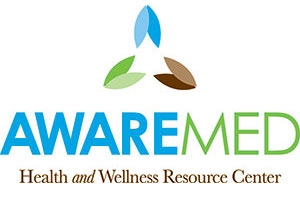Shoulder Instability, Subluxation and Dislocation Treatment in Boone, NC

There is no joint in the body with greater range of motion than your shoulder, but this wide range of motion makes it vulnerable to subluxation or dislocation.
Three bones fit together to form your shoulder: your upper arm bone (humerus), your shoulder blade (scapula), and your collarbone (clavicle). Subluxation is a partial dislocation where the ball of the upper arm bone or humerus slips partially out of the glenoid socket, whereas a dislocation is a complete separation between the socket and bone, which then separates the humerus and scapula..
Both subluxation and dislocation can occur through overuse or sudden injury. The shoulder joint can dislocate in three directions: downward, backward or, most commonly, forward. This is called anterior instability and usually occurs when the arm is in a throwing position and the arm bone moves forward then down and out of the shoulder joint.
Once your shoulder is either subluxated or dislocated, it is more vulnerable to recurrent subluxations and dislocations. With each occurrence, the muscles, tendons and ligaments that once kept your shoulder stable begin to loosen or even tear, and the humerus slips out of the glenoid socket more frequently, resulting in what is called chronic shoulder instability.
Shoulder Instability, Subluxation and Dislocation Diagnosis
Shoulder subluxation or dislocation can be marked by pain, weakness, swelling and numbness. You should not attempt to handle a serious shoulder injury without consulting your healthcare provider. Physical examination, X-rays or even an MRI may be required to assess the damage to your shoulder. Your healthcare provider will also want to rule out nerve damage and ensure there are no torn ligaments or tendons in the shoulder.
Shoulder Instability, Subluxation and Dislocation Treatment
There are several non-surgical and surgical treatment options available to you based on the severity of your injury. Together with your healthcare provider, the most effective treatment plan will be developed.
Non-Surgical TreatmentIf subluxation or dislocation is the only issue, your doctor may do what is called a closed reduction, where the ball of the upper arm bone (humerus) is simply slipped back into the joint socket. The pain is immediately arrested once the shoulder joint is back in place.
Afterwards, your shoulder may need to be immobilized in a sling for a number of weeks. The sore area should be iced 3-4 times a day and rest is essential for healing. After the pain and swelling go down, your doctor or physical therapist may suggest exercises to
rehabilitate your shoulder, restore range of motion and strengthen the surrounding muscles.
You should not return to sports or strenuous activity until the pain and swelling have completely resolved. Activity modification after recovery is essential to avoid re-injury to the shoulder and to prevent the development of chronic shoulder instability. Avoiding work that requires repetitive overhead motion, or sports like volleyball, swimming or tennis, may be necessary.
If chronic shoulder instability develops, a brace and ongoing therapy will be prescribed but are sometimes not enough.
Surgical TreatmentTo stabilize your shoulder, there are several different surgical options. Arthroscopic surgery is minimally invasive where your surgeon uses an arthroscope (with small cameras) through incisions in your skin to evaluate and repair your shoulder instability. Capsular shift is an arthroscopic surgery where ligaments can be tightened, and labral repair is another used to debride or suture tears.
If open surgery is necessary, a Latarjet procedure may be done when there is bone loss from the socket due to repeated dislocations. A bone graft is taken from one part of the shoulder and secured with screws to replace bone worn away in your shoulder socket.
Request more information about shoulder instability, subluxation and dislocation today. Call (423) 482-8711 or contact AWAREmed Health and Wellness Resource Center online.
AWAREmed Health and Wellness Resource Center
Address
1604 Lamons LaneSuite 202
Johnson City, TN 37604
(423) 482-8711
www.awaremed.com
Hours
Mon:
9:00 am - 5:00 pm
Tue:
9:00 am - 5:00 pm
Wed:
9:00 am - 5:00 pm
Thu:
9:00 am - 5:00 pm
Fri:
9:00 am - 5:00 pm

